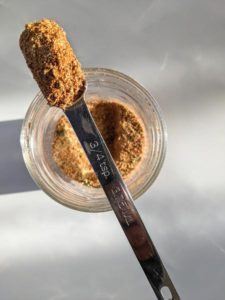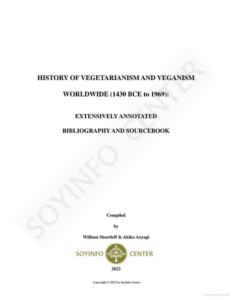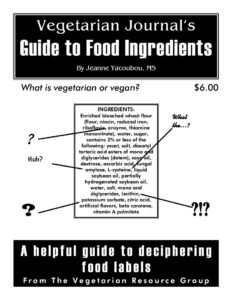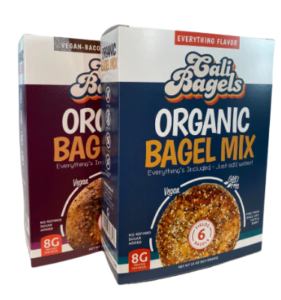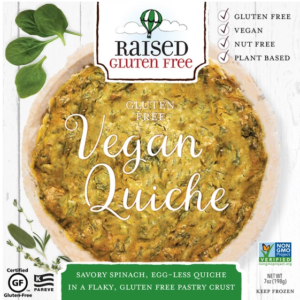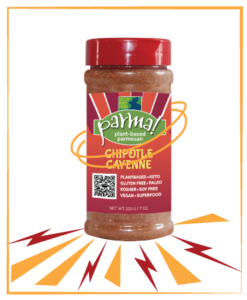Posted on
April 15, 2022 by
The VRG Blog Editor
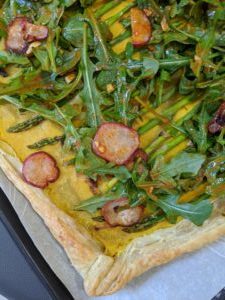
By Rissa Miller, Vegetarian Journal Senior Editor
(Serves 6)
1 Tablespoon vegan margarine/butter
1 small onion, sliced
3-4 radishes, sliced
1-2 cloves garlic
2 sheets vegan puff pastry, thawed to room temperature
Flour, to roll dough
One 16-ounce silken tofu, drained
1/4 cup chickpea flour
1/4 cup nutritional yeast
1 Tablespoon miso
1 teaspoon turmeric
1 teaspoon garlic powder
1 teaspoon arrowroot powder
Pinch black salt (optional, see note below)
Pinch ground white pepper (optional)
1 bundle of asparagus, ends trimmed
Salad Topping with Smoked Paprika Vinaigrette:
2 Tablespoons olive oil
1 Tablespoon maple syrup
1 Tablespoon Dijon mustard
1 Tablespoon red wine vinegar
1 teaspoon smoked paprika
Salt/pepper, to taste
4 cups fresh arugula, baby spinach, baby kale, or spring mix greens
2 Tablespoons sunflower seeds (optional)
Preheat oven to 400 degrees. Line two baking sheets with parchment paper and set aside.
In a medium side skillet, melt the vegan margarine and toss in onion, radishes, and garlic. Sauté vegetables until lightly browned and fragrant. Set aside.
Flour a flat surface and individually roll puff pastry sheets using a rolling pin or flat jar until each sheet is roughly about 12×14 or so. Move one puffed pastry sheet to each baking sheet and set aside.
In a blender or food processor, combine silken tofu, chickpea flour, nutritional yeast, miso, turmeric, garlic powder, arrowroot powder, black salt, and white pepper. Purée until smooth and creamy with no chunks of tofu remaining. Pour half of the mixture onto one puff pastry sheet and spread it evenly up to one inch from the sides. Fold sides over to make the crusty edge of the tart. Repeat with remaining tofu mixture on second puff pastry sheet. Use half of the asparagus and place it across the middle of the tart in a row in any way that looks appealing. Repeat with the second tart. Divide the sautéed onions, radishes and garlic, and sprinkle half on each tart.
Bake at 400 degrees for 15-18 minutes until the tart center is set up firmly and the crust is crispy and golden brown. Allow to cool on the pan for at least 10 minutes before topping with salad.
While tarts bake, prepare the Salad Topping with Smoked Paprika Vinaigrette. In a ball jar with a lid or a bowl combine olive oil, maple syrup, Dijon mustard, red wine vinegar, smoked paprika and salt/pepper. If using a jar, shake to mix or in a bowl, whisk until blended. Toss arugula/greens, sunflower seeds and vinaigrette until well combined. When tarts are cooled, spread salad over each one. Slice each tart into six portions and serve slightly warm or at room temperature.
